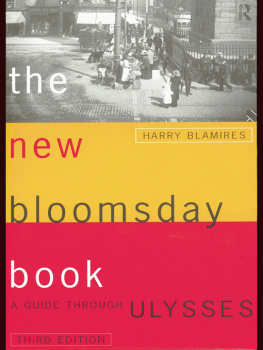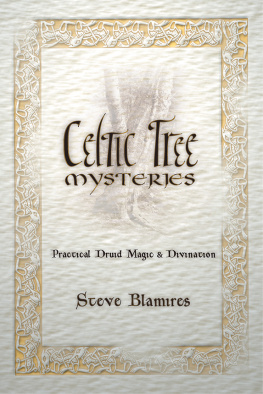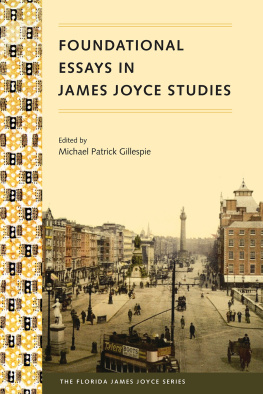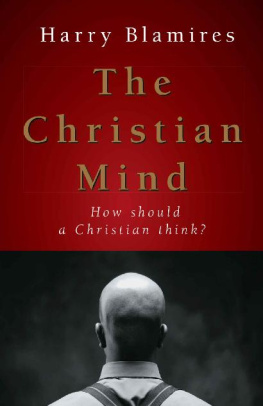Blamires - The New Bloomsday Book
Here you can read online Blamires - The New Bloomsday Book full text of the book (entire story) in english for free. Download pdf and epub, get meaning, cover and reviews about this ebook. year: 2008, publisher: Taylor and Francis, genre: Detective and thriller. Description of the work, (preface) as well as reviews are available. Best literature library LitArk.com created for fans of good reading and offers a wide selection of genres:
Romance novel
Science fiction
Adventure
Detective
Science
History
Home and family
Prose
Art
Politics
Computer
Non-fiction
Religion
Business
Children
Humor
Choose a favorite category and find really read worthwhile books. Enjoy immersion in the world of imagination, feel the emotions of the characters or learn something new for yourself, make an fascinating discovery.
- Book:The New Bloomsday Book
- Author:
- Publisher:Taylor and Francis
- Genre:
- Year:2008
- Rating:5 / 5
- Favourites:Add to favourites
- Your mark:
- 100
- 1
- 2
- 3
- 4
- 5
The New Bloomsday Book: summary, description and annotation
We offer to read an annotation, description, summary or preface (depends on what the author of the book "The New Bloomsday Book" wrote himself). If you haven't found the necessary information about the book — write in the comments, we will try to find it.
The New Bloomsday Book — read online for free the complete book (whole text) full work
Below is the text of the book, divided by pages. System saving the place of the last page read, allows you to conveniently read the book "The New Bloomsday Book" online for free, without having to search again every time where you left off. Put a bookmark, and you can go to the page where you finished reading at any time.
Font size:
Interval:
Bookmark:

Joyces symbolism cannot be explained mechanically in terms of one-for-one parallels, for his correspondences are neither exclusive nor continuously persistent. Nevertheless certain correspondences recur throughout Ulysses , establishing themselves firmly. Thus Leopold Bloom corresponds to Ulysses in the Homeric parallel, and Stephen Dedalus corresponds to Telemachus, Ulyssess son. At the beginning of Homers Odyssey Telemachus finds himself virtually dispossessed by his mothers suitors in his own fathers house, and he sets out in search of the lost Ulysses. In Joyces first episode Stephen Dedalus feels that he is pushed out by his supposed friends from his temporary residence, and leaves it intending not to return. The residence in question is the Martello tower on the beach at Sandycove, for which Stephen pays the rent. Buck Mulligan, a medical student, shares it with him, and they have a resident visitor, Haines, an Englishman from Oxford.
It is morning. The day begins with a parody of the Mass. Buck Mulligan, mimicking a priest approaching the altar, sings the introit and carries his shaving-bowl like the chalice. Stephen watches Mulligan from the staircase as he mockingly blesses his surroundings and offers to an imaginary congregation the body and soul and blood and ouns (wounds) of a female Christ, christine, (His equine face and hair like pale oak hint at the treachery of a wooden horse.) The lathered water in the bowl represents the white corpuscles; the three whistles burlesque the sacring bell. Mulligan brings Chrysostomos to Stephens mind because Mulligans gold-stopped teeth and his gift of the gab earn him the title which St John Chrysostoms preaching earned him, golden-mouthed. Mulligans ecclesiastical mummery before Stephen is a mockery of Stephens seriousness, his intellectualism, and his former religious fervour.
Stephen provides a watchful but weary audience for Mulligans performance. He complains of the behaviour of their English guest, Haines, who is subject to hysterical nightmares. Last night Haines raved terrifyingly after dreaming of a black panther. (Later passages establish the black panther as a symbol of Bloom, whose Christian name is Leopold. It is a symbol, too, which carries overtones of divinity Bloom becomes the lost father whom Stephen discovers.) Mulligan borrows Stephens handkerchief, mocks the beauty of the snotgreen sea, and Algy Swinburnes description of it as the great sweet mother (in The Triumph of Time ). The image of the sea as mother introduces a persistent series of linkages between water and womanhood which relate to an underlying contrast between barrenness and fertility.
Mulligan seriously disapproves of Stephen for having refused to comfort his mother by praying at her deathbed. (See A Portrait of the Artist as a Young Man .) Because of Stephens reputation, Mulligan has been forbidden by his aunt to have contact with him. Mulligans rebuke brings back to Stephen the memory of a dream which he had soon after his mothers death, in which she appeared to him in her grave clothes. This memory haunts Stephen intermittently throughout the day and indeed dominates his mind at the moment of crisis in the Circe episode, itself the crisis episode of the book. (See pp. 4735/ 6813 .)
At this stage begins the series of hints which establish an important correspondence between Stephen and Hamlet. As Hamlet sees his fathers ghost on the platform of Elsinore Castle, so Stephen recalls, here on top of the Martello tower, the dream of his mothers ghostly reappearance. Mulligan, like Claudius, is a usurper. Mulligan chides Stephen for not casting his nighted colour off (He kills his mother but he cant wear grey trousers). Claudius-like again, Mulligan fancifully indulges 6the story that Stephen is mad (has general paralysis of the insane). He tries to make Stephen see himself as others see him, holding up a cracked mirror before him; but for Stephen the mirror is a Shakespearean symbol of art (Drama holds the mirror up to nature in Hamlet , and see p. 463/), and the cracked looking-glass of a servant a symbol of Irish art in particular. (The metaphor is Oscar Wildes.) Mulligan talks of touching Haines for money, then of organizing a ragging of Haines if he proves troublesome. The memory of how Clive Kempthorpe was ragged stirs Stephen, who hates violence, to say Let him stay.
Once more Claudius-like, Mulligan tries to probe Stephens moodiness, What have you against me now?, and Stephen refers to an occasion soon after Mrs Dedaluss death when Mulligan alluded to her callously as beastly dead. Mulligans response in part parodies Claudiuss response to Hamlet. Deaths occur daily; the only tragic feature in this case was Stephens own refusal to humour his mothers dying request. Stephen is not comforted. He resents Mulligans insult to himself rather than the insult to his mother. And now, after telling him to stop brooding, Mulligan ironically begins to sing the very song which Stephen sang for his mother, at her special request, on her deathbed (Who goes with Fergus? by Yeats). This song, too, recurs to Stephen at later moments of crisis (see pp. 474/ and 496/). Here he recalls the deathbed scene, then moments of his mothers life from girlhood, some from her memories handed on to him, others from his own; and these lead to a fuller and more detailed recall of her ghostly reappearance in his dream, when the agony of her death and her failure to move him to pray were re-enacted in grotesque frightfulness (cf. pp. 4735/ 6813 ). Stephens rejection of her dying demand that he should go through the motions of Catholic orthodoxy is a focal act around which cluster his demands for personal freedom. Indeed, symbolic correspondences give Stephens act of disobedience at his mothers deathbed an archetypal significance. It is associated with the acts of disobedience by which Lucifer rebelled against God (p. 42/63 : llbright he falls, proud lightning of the intellect etc.; see also p. 475/682 ) and by which Eve rebelled against God (p. 32/46 , Will you be as gods?). Thus the Fall of the Angels, by which Satan was cast out from Heaven, and the Fall of Man, by which Adam and Eve were cast out of Eden, provide a cosmic background against which Stephen, exiled from his fathers house and from the Martello tower, seeks independent individual fulfilment as man and as artist.
Mulligan calls Stephen down to breakfast and repeats his suggestion that Stephen should touch Haines, who is his admirer, for money. But this is just the kind of subservience (to English wealth) which Stephen rejects. Anyway, he reminds Mulligan that today is pay-day; whereupon the latter foresees a drinking bout at Stephens expense. Mulligan goes downstairs first, leaving Stephen to meditate on his forgotten friendship and his forgotten shaving-bowl. Shall he take the bowl down for him, he wonders, holding it as he used to hold the incense boat when he acted as server at Mass at Clongowes, thereby once more, in a different context, assuming the servants role? (Server of a servant because Catholic Ireland is Englands servant and Mulligan is ultimately the servant of Ireland and conventionality)
In the living-room below Mulligan, Haines, and Stephen settle down to breakfast, cooked and served largely, it would seem, by Mulligan, who continues his ritualistic mummery in the process. The comic story of Mother Grogan establishes a connexion between making tea and making water, which continues through the book. The two represent creativity and fertility. The young men carry on a burlesque literary conversation, mockingly treating Mother Grogan and her story as fit subjects for scholarly research.
Font size:
Interval:
Bookmark:
Similar books «The New Bloomsday Book»
Look at similar books to The New Bloomsday Book. We have selected literature similar in name and meaning in the hope of providing readers with more options to find new, interesting, not yet read works.
Discussion, reviews of the book The New Bloomsday Book and just readers' own opinions. Leave your comments, write what you think about the work, its meaning or the main characters. Specify what exactly you liked and what you didn't like, and why you think so.






